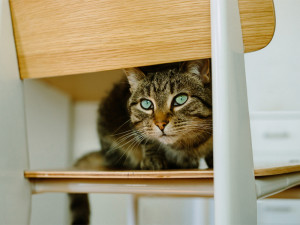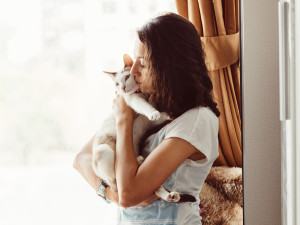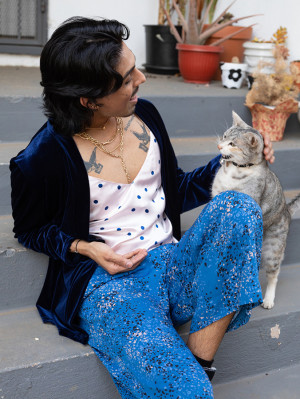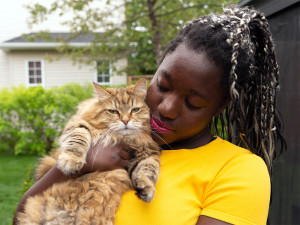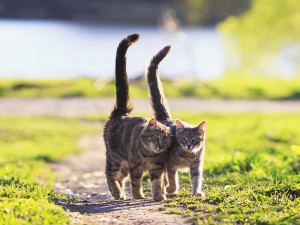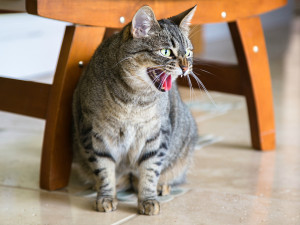The Cat’s Meow – What Does it All Mean?
How to decode your cat’s love language when one meow has many meanings
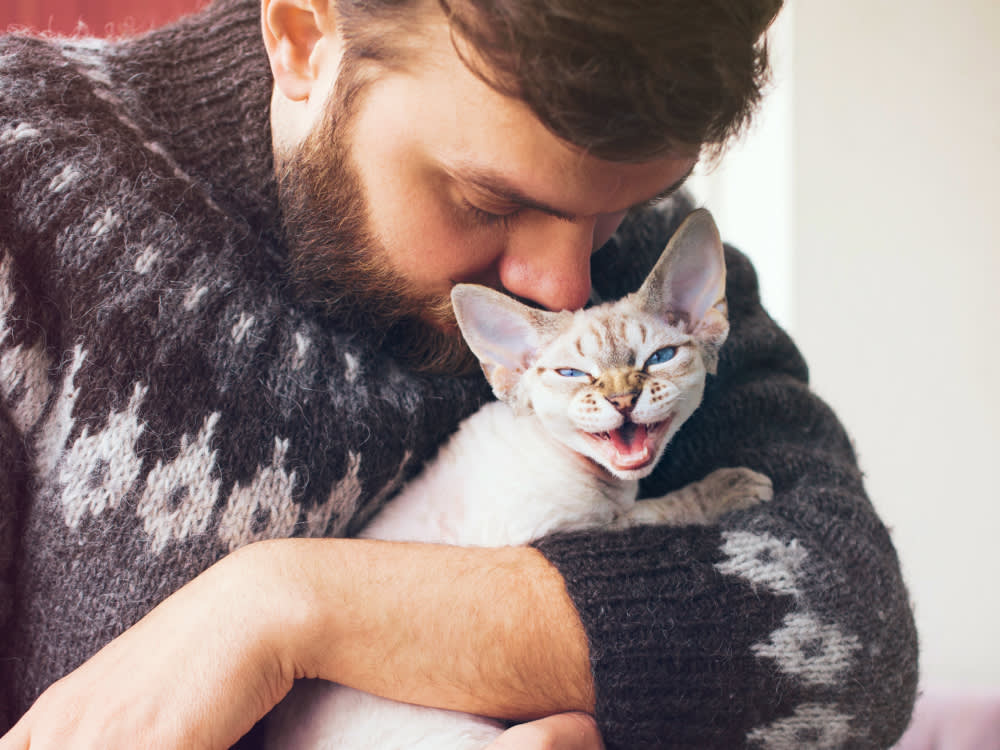
Share Article
Your cat knows one word, and they repeat it over and over. And over. Cats meow to communicate, get your attention, make a demand and express an opinion – so it should come as no surprise that living with a cat often means a never-ending chorus of meows. But how can we tell them apart, and what if we just need them to pipe down a bit?
Sometimes, the message is clear, or it’s a call to action: they’re happy that you’re home from work, they’re stuck behind a closed door, they’re hangry… or, Dr Tammy Johnson suggests, “the vocalisations could be a learned behaviour”. In other words, your cat might have discovered that, the more persistently they meow, the more likely you are to stop scrolling Instagram and stroke them or share your snack.
As hard as it is, these cries for attention should be ignored, not reinforced. “If you want your cat’s incessant meowing to stop, don’t reward them with feedback or food – reward them when they’re quiet.”
Before you tune them out completely, make sure that your cat isn’t trying to tell you something important. More frequent meowing, changes to the tone or a perceived urgency could be a sign of pain or another medical issue.
For example, older cats with feline cognitive dysfunction (dementia) meow more than usual when they are confused or disoriented. On the other hand, when a cat who’s normally a chatterbox goes quiet, Johnson says “they might not feel well enough to meow”.
Female cats in heat can meow endlessly, as can unaltered males when they sense a potential mate nearby, but spaying and neutering is a quick fix.
Ultimately, “You know your cat better than anyone,” says Johnson. “If their meowing changes, and there is no attributable change in the environment, you should have your cat evaluated by a vet.”

Jodi Helmer
Jodi Helmer is a North Carolina-based freelance writer who shares her home with an embarrassing number of rescue dogs and relies on four feral cats to patrol the barn. When she isn’t refilling food and water dishes, Jodi writes about animals for Scientific American, Sierra, WebMD, AKC Family Dog, Living the Country Life, and Out Here.
Related articles
![Young woman hugging her cat]()
Why Do Cats Purr?
Surprise: it doesn’t always mean they’re happy
![Happy stylish latino queer person looking comfortable on porch steps with gray cat.]()
Cats Lifespan: How Long Do Cats Live?
They are the absolute light of your life. Here’s how you can help them live as close to forever as possible
Cat Allergies: Do Hypoallergenic Cats Exist?
If the sniffles are getting you down, don’t stress: you have options
![Two cats walking with their tails sticking straight up]()
Tail Talk: What Is Your Cat Trying to Tell You?
Cats are enigmas. But their tail movements can reveal a lot about their moods
![cat hissing under chair]()
Cat Hissing: Fair Warning or Fighting Words?
Your cat’s hissy fit could mean ‘Don’t test me’ or ‘Let’s do this’. It’s best not to call their bluff


